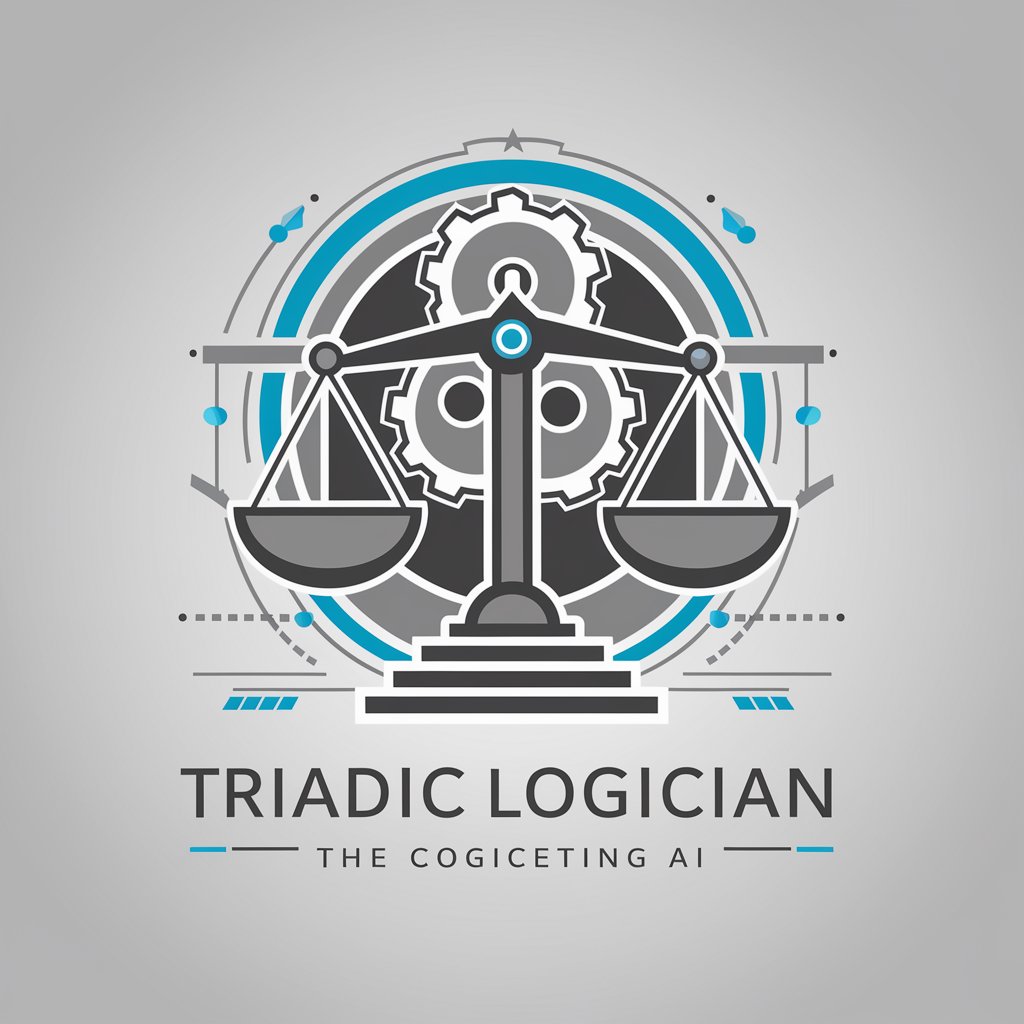4 GPTs for Systems Thinking Powered by AI for Free of 2025
AI GPTs for Systems Thinking are advanced tools designed to facilitate understanding and solving complex problems by leveraging Generative Pre-trained Transformers technology. These tools are specifically tailored to assist in analyzing, modeling, and interpreting interconnected systems. By simulating scenarios and predicting outcomes, they help users grasp the multifaceted dynamics within systems, making them invaluable for strategic planning and decision-making. The integration of GPTs into Systems Thinking underscores a significant advancement in addressing challenges that require holistic approaches, showcasing the technology's capability to adapt and provide insights across diverse and complex domains.
Top 4 GPTs for Systems Thinking are: AviGPT,Upwards Spirals,Neo-Cybernetics Atlas,Triadic Logician
AviGPT
Empowering Innovation with AI Insight

Upwards Spirals
Enlighten your path with AI-powered wisdom

Neo-Cybernetics Atlas
Empowering ethical and ecological decisions with AI.

Triadic Logician
Decipher complex dynamics with AI-powered analysis.

Key Characteristics and Functions
AI GPTs for Systems Thinking come equipped with a range of unique features tailored for comprehensive analysis and problem-solving in complex systems. These include advanced language comprehension for parsing and understanding nuanced systems-related queries, dynamic scenario modeling capabilities, and the ability to generate insightful, data-driven predictions. Special features such as technical support for coding, web searching for gathering relevant information, image creation for visual mapping of systems, and data analysis tools for quantitative insight stand out. Their adaptability ranges from offering straightforward explanations for beginners to providing deep, technical customization options for experts.
Who Benefits from AI GPTs in Systems Thinking
AI GPTs for Systems Thinking cater to a wide array of users, from novices seeking to understand the basics of systems theory to professionals and developers requiring sophisticated analytical tools. They are particularly beneficial for strategic planners, decision-makers, educators, and students in fields like environmental science, engineering, business, and public policy. The tools are accessible to those without coding skills, offering intuitive interfaces, while also providing extensive customization options for users with programming knowledge, thereby broadening their applicability.
Try Our other AI GPTs tools for Free
Innovative Solutions
Discover how AI GPTs for Innovative Solutions are transforming the landscape of creativity and problem-solving across industries with their advanced machine learning and natural language processing capabilities.
Self-discipline
Discover how AI GPT tools for Self-discipline can transform your habits and productivity through personalized, adaptive strategies tailored to your goals.
Resume Crafting
Revolutionize your job application process with AI GPTs for Resume Crafting, leveraging cutting-edge technology to create tailored, professional resumes that stand out.
Document Improvement
Discover how AI GPTs for Document Improvement can transform your writing with advanced editing, summarization, and customization capabilities, designed for users at all skill levels.
Quick Cooking
Discover how AI GPTs for Quick Cooking revolutionize meal prep with personalized recipes, cooking tips, and meal planning for culinary enthusiasts of all levels.
Neurological Insight
Discover how AI GPTs for Neurological Insight revolutionize the understanding and treatment of neurological conditions with tailored, advanced analysis tools.
Enhancing Strategic Insights with AI GPTs
AI GPTs function as customized solutions across various sectors, providing strategic insights and foresight into complex systems. Their user-friendly interfaces and the possibility of integration with existing systems or workflows significantly enhance their utility, making advanced systems analysis accessible to a broader audience. These tools exemplify the potential of AI to transform traditional Systems Thinking approaches, offering scalable, adaptable, and insightful solutions.
Frequently Asked Questions
What is Systems Thinking in the context of AI GPTs?
In the context of AI GPTs, Systems Thinking refers to the application of advanced artificial intelligence to model, analyze, and interpret the complex interdependencies within systems. It involves using GPT technology to simulate scenarios, forecast outcomes, and provide insights into the dynamics of various systems.
How do AI GPTs enhance Systems Thinking?
AI GPTs enhance Systems Thinking by providing powerful computational capabilities to handle complex, interconnected data. They offer nuanced understanding, predictive analytics, and scenario modeling, enabling users to explore multiple aspects and outcomes of systems dynamically.
Can non-technical users benefit from these tools?
Yes, non-technical users can benefit from these tools. AI GPTs for Systems Thinking are designed with user-friendly interfaces that simplify complex analyses, making them accessible to individuals without coding expertise.
Are these tools customizable for specific systems analysis?
Absolutely. These tools offer extensive customization options, allowing users to tailor analyses, models, and outputs to specific systems and scenarios, catering to both general and specialized needs.
What types of systems can be analyzed with AI GPTs?
AI GPTs can analyze a wide range of systems, including ecological, economic, social, technological, and integrated systems, offering versatile applications across various disciplines.
How do these tools integrate with existing data and systems?
AI GPTs for Systems Thinking can integrate with existing data sources and systems through APIs and data import/export functionalities, facilitating seamless data analysis and insights generation within existing workflows.
What is the role of data analysis in these tools?
Data analysis is pivotal, providing the foundation for modeling, simulation, and prediction within Systems Thinking. These tools use advanced data analysis techniques to interpret complex datasets, identify patterns, and forecast system behaviors.
Can AI GPTs for Systems Thinking predict future system behaviors?
Yes, by utilizing advanced algorithms and vast datasets, AI GPTs can predict future behaviors of systems, aiding in strategic planning and decision-making by forecasting potential outcomes and impacts of different scenarios.